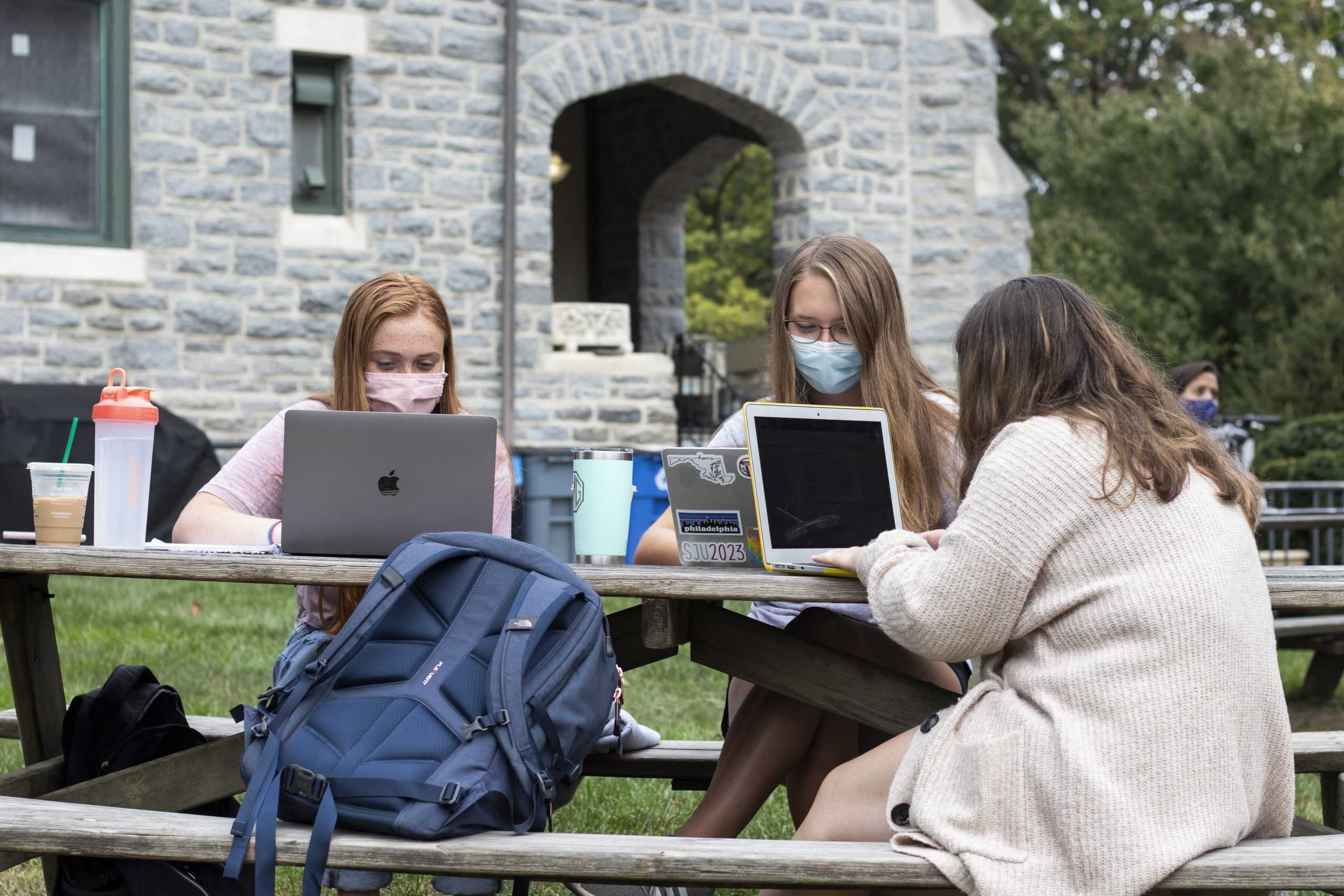The university announced on Sept. 25 that spring break for the 2021 semester would be eliminated. As a result, Campus Ministry officially canceled the Appalachian Experience (APEX), which normally takes place that week.
Emily Fordham ’21, an APEX coordinator, said planning for the spring 2021 semester is already underway, and a virtual APEX program would still plan to connect students to their sites and focus on education about the Appalachian region.
“There are a lot of great community partners that we have in a virtual, or in a potentially virtual format,” Fordham said. “So, we would be looking into doing some outreach and having some of those community members connect to a wider St. Joe’s population than we’ve ever been able to do in the past.”
The Campus Ministry staff as a whole spent this summer adapting their programming plans for summer and winter programs as well to make sure they could provide events for St. Joe’s students to attend during the fall 2020 semester that adhere to COVID-19 regulations.
The restrictions outlined in the university’s reopening plan for the fall 2020 semester contributed to the cancelation of both Campus Ministry’s summer Philadelphia Service Immersion Program (PSIP) and Winter Immersion Program (WIP).
Tom Sheibley, director of Campus Ministry, said Campus Ministry has been holding both virtual and socially distanced programs, and created a new form of first-year outreach: the ENGAGE program, to keep students involved.
“What we’ve tried to do is to work fully within the guidelines that the university administration is asking, in terms of keeping people apart from one another,” Sheibley said. “But also to try to find creative ways, where we can actually have some in-person events.”
Sheibley said Campus Ministry was already looking to implement the new ENGAGE program, even before the coronavirus pandemic. The ENGAGE program gives first-year students opportunities to meet during times that work with their schedules.
“[First-year students] gather together for an hour with other freshmen who are interested in checking out Campus Ministry and the opportunities that we have to explore faith and spirituality, and to get involved with the community here,” Sheibley said.
The ENGAGE program meets three different times throughout the week, and the group is limited to the 25 people in the Chapel of Saint Joseph. So far, the program is a success, Sheibley said.
“It is at least some opportunity for them to get to know one another, and for people who share a common interest in exploring Campus Ministry as one of the ways of connecting here to make St. Joe’s their home,” Sheibley said.
One of the struggles Campus Ministry faced in its initial program planning was the importance of the community aspect for hosting effective programs, according to Sheibley.
“You can run programs virtually, but ministry is a much more personal thing,” Sheibley said. “Much of what makes Campus Ministry programs work is the fact that it happens within the community.”
Tinamarie Stoltz, campus minister, said although there are difficulties in planning programming, she is continuing to appreciate Campus Ministry’s work and what it means for students participating in different programs.
“I’ve learned a lot about what ministry has, versus what ministry is,” Stoltz said. “Ministry has programs, but ministry is relationships.”
But, in light of so many changes to Campus Ministry’s programming, Sheibley said it is Campus Ministry’s goal to continue its purpose of serving students in any way possible.
“I want people to know that Campus Ministry is here,” Sheibley said. “One of the things that certainly hasn’t gone away is there are students who just have curiosity, or questions, or are looking for ways to explore their faith.”




















































